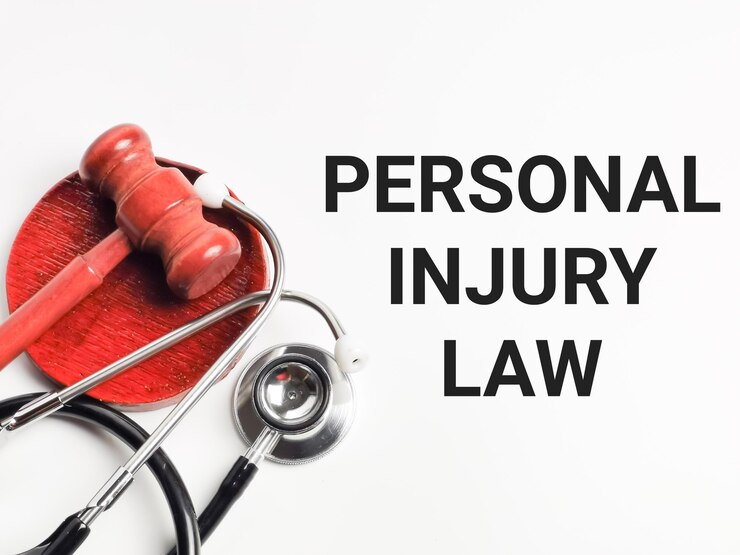Social Media VS. Personal Injury Claims
by Ankita Tripathy Legal Published on: 07 November 2023 Last Updated on: 13 December 2023

In today’s world, it’s hard to imagine living without social media, as it’s become an integral part of our daily existence. Having a platform for self-expression and connection has changed our relationship with how easily we share information.
However, it’s important to use discernment before posting, especially in cases where there could be consequences. One such area is in personal injury claims.
In this article, we’ll explore case studies that provide valuable lessons for those navigating a personal injury claim.
What Is Personal Injury Law?
Personal injury laws are the legal areas that are intended to help the victims in an accident. They receive the necessary justice and compensation. If you, an individual, met with an accident while on the road, you can file a claim in the state or federal court.
You can file your cases of your own. But it is a hundredfold better if you get the help of accident lawyers. They are experienced enough to ensure you get the necessary compensation against the losses. Therefore, getting the help of personal injury attorneys is highly beneficial. If your first step is hiring a lawyer, your second step has to be receiving the claims that include the following:
- Lost wages and earnings.
- Pain and suffering.
- Emotional distress.
- Medical bills.
All these play a major role in understanding your personal injury claims.
How Can Social Media Harm You in Receiving The Compensation?
Social media can indeed distort all your claims on personal injury. There are damages to your efforts to receive adequate claims. Here, we discuss some of the activities of social media marketing that are indeed harmful or damaging;
- Post pictures of any physical activities while suing for the injuries or disabilities.
- Posting the utterly confidential settlement details.
- Posting about the working while claiming about the lost wages. They are indeed detrimental to the reputation of the business.
However, the first step you need to take is the assistance of a personal injury lawyer. They are professionals and will give you all the dos and don’ts regarding posting on social media platforms. Here, we discuss some of the ways through which it is managed properly.
The Social Media Temptation
There’s a lot of temptation on social media to open up about our experiences, even accidents and injuries. It’s natural to turn to online communities for support and empathy during challenging times. We want our friends to know what we’re going through. The truth is, that sharing details about accidents on social media can potentially jeopardize your chances of receiving fair compensation.
Real-Life Case Studies

Case 1: The Unintentional Admission
Consider the case of Sarah. She was involved in a car accident and suffered serious injuries. In her eagerness to update her friends, she posted pictures from the accident scene and showed her injuries on social media. Unfortunately, her insurance company used these posts to argue that her injuries were not as severe as she claimed, thus leading to a lower settlement offer. Sarah learned the hard way that oversharing can inadvertently compromise a personal injury claim.
Case 2: The Unexpected Evidence
On the flip side, there’s Daniel, who was involved in a slip-and-fall accident at a local store. He refrained from posting about it on social media, but a security camera in the store captured the incident. When Daniel’s attorney presented this footage as evidence, it greatly strengthened his personal injury case. In this instance, social media silence worked in his favor.
Case 3: The Compromised Settlement
Then there’s Amanda, who became injured at work and filed a personal injury claim. Throughout her claim process, she continued to post photos of her life, which included physical activities that contradicted the extent of her reported injuries. This led to her insurance company questioning the validity of her claim and offering a reduced settlement. Amanda’s oversharing on social media had unintended consequences.
Tips for Social Media Use

These real-life cases underscore some essential lessons. While it’s essential to protect your personal injury claim, you don’t have to completely disconnect from social media.
Here are a few tips to maintain a healthy balance:
Think Before You Post:
Always consider how your social media content could impact your personal injury claim. Avoid discussing the accident, injuries, or ongoing legal proceedings on public platforms.
Review Past Content:
Consider reviewing and removing any content that could harm your claim.
Privacy Settings Matter:
Adjust your privacy settings to limit who can see your posts, making it harder for insurance companies to access potentially damaging information. Share updates selectively with a trusted audience.
Consult Your Attorney:
Seek guidance from an experienced personal injury attorney who can advise you on responsible social media use during your claim. They can help you navigate the fine line between sharing and compromising. Following the tips can make a significant difference in the outcome of your claim.
If you follow the tips above, it can make a significant difference in the outcome of your claim.
What Are The Benefits Of Hiring a Personal Injury Lawyer?
Personal injury lawyers are legal professionals experienced with the related laws. They provide the right advice to the clients so that they can get the best judgment. However, we discuss some of the benefits of using personal injury lawyers.
Represents You On The Court
The personal injury lawyers are highly experienced, and they have a good knowledge of the subject. They are even well aware of the legislative alleys so that they steer the claimants through the convolutions and ensure apt and just compensation.
Preparing A Strong Case
The efficacy of a legal battle depends, to an extent, on preparing a strong case. The legal experts are highly experienced. They have good knowledge, and they can prepare a strong possibility that is capable of earning compensation on behalf of the claimant.
Other than this, personal injury use their negotiation skills to settle cases outside the court to expedite justice.
Conclusion
While social media offers a valuable platform for sharing, weigh the potential consequences before you post. Striking a balance between sharing your life and protecting your interests is the key to a successful personal injury claim.
Read Also:







































































































